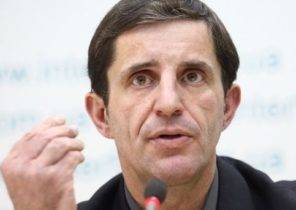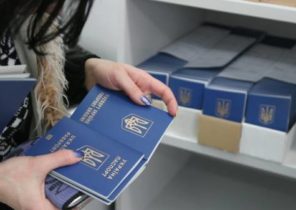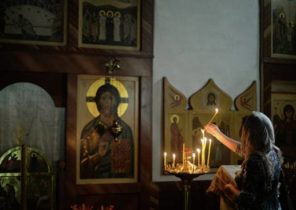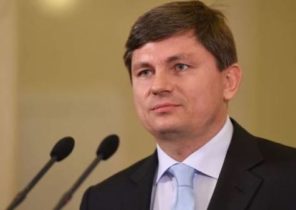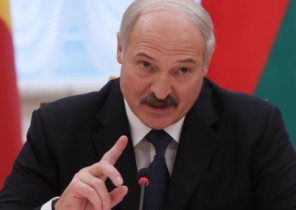At the 2014 conference of teachers of history Vladimir Putin humbly acknowledged: “as to some problematic pages in our history — Yes, they were.” And continued: “So they were in the history of any state! And we had less than some others…. And should not be allowed to impose a feeling of guilt.”
Alex Halberstadt (Halberstadt Alex), a journalist, a Russian immigrant, went to America in 1980 (just at the time when Putin in his pleasure followed by foreign officials in Leningrad, gathering information for the KGB), has a different opinion. In his wonderful book of family memoirs, he alleges that the injuries received during all his experiences in Russia in the XX century, left such deep scars that any such attempt to flatten them out is doomed to failure.
Halberstadt plays with the provocative idea put forward in 2013, the authors of the study in the field of epigenetics, whereby the stresses experienced in the past, can leave a physical mark on the representatives of later generations. Of course, this is what is referred to in written memoirs. In the story of the family of his father, the fate of the members of which were tangled and twisted because of the role they played in the apparatus of the Soviet state, and about his mother’s family, whose members were victims of the Holocaust in Lithuania, there is enough pain and trial to last for several generations.
As noted by Alexander Solzhenitsyn, can not rely on what the person is warm understand one who’s freezing. And almost impossible to understand the feelings of those who survived this period. To overcome this lack of understanding is possible only through personal stories about their experiences.
And Halberstadt is quite extraordinary witness to the events of that day, the paternal grandfather, Basil.
Most likely, Vasily, the last survivors of the guard Stalin and frighteningly close associate Lavrenty Beria, this high-ranking monsters, was a man, chat with which the Halberstadt was not easy. “It was a dark years,’ said Basil. Always wanted to know how to act in a particular situation…”. To questions about his work, he answered evasively, but answer, which ultimately could do the “paper work” and “interrogations” (the two pillars of the Communist state) — seems pretty eloquent.
But thanks to Basil we can get an idea about how it was possible to admit the existence of this state. We might sign, for example, the grotesque image of Stalin, who at a party Banquet, drove his wife from the table, throwing her orange peel and cigarette butts on the night before she was found dead (she shot herself in the head from a gun). But only with the eyes of Basil, a 21-year-old peasant’s son, were among the prominent people of the Soviet Union, we can understand such a scene, perceiving it with any feelings but disgust. Despite the fact that the “bodies” exiled kulaks (wealthier peasants), such as the father of Vasily, and made orphans “dozens of his former classmates,” Vasily admits that in the Kremlin dining room, “I remember, I was satisfied and happy…”.
The share of families of mother Halberstadt fell much less misfortunes that befell their homeland. At a relatively enlightened rulers of Lithuania’s Jewish population of Vilnius has increased so much that in 1812 Napoleon called this city “Northern Jerusalem”. And perhaps precisely because of the relative safety in which they lived, the Lithuanian Jews, relatives of Halberstadt was not aware of the threat they faced in June 1941, when it became clear that the city will fall under the onslaught of the Nazis. It Vilnius relatives were convinced that the compatriots of Bach and Schiller should behave “like civilized Europeans”, but by the summer of 1944 95% of the 250 thousand Lithuanian Jews were killed.
Subsequently, the grandfather of Halberstadt suffered due to the fact that he could not persuade other members of his family to run with him. He fled to the roof of the train, EN route to the border of Russia. And the fact that he was immediately drafted into the Red Army (the army of the country to which he felt no attachment, and which was not obliged to be loyal), embodies the main idea of this book of memories. The idea that in the XX century in Russia and Eastern Europe, “the line between history and biography has become almost invisible”, and everyone was a pawn in the hands of history.
For example, the grandmother of Halberstadt, who collapsed in the train jumped, fleeing from Lithuania in 1941 and woke up with a shaved bald head in a typhus barrack in Uzbekistan. Long before the great-grandfather of Halberstadt was drafted into the Royal army, and in the end, he was in a Berlin hospital. In his village he returned in 1923, having passed most of the way on foot (which is remarkably similar to the story “the incident at lake Geneva” by Stefan Zweig, the writer, who himself was also keen on the idea of loss of freedom due to historical circumstances).
Even those who are lucky and who the fate of the “not rooted”, broke the state. In Moscow in the early 1940-ies, in conditions of widespread shortages of food and fuel, factories worked at night, and for one day of absence from work of people mandatory was sentenced to five to eight years in prison.
Described by Halberstadt own difficulties he faced as a young immigrant in 1980-e years, does not match the scale of the suffering of his family. Moreover, they left some of the published in the journal “family detective” on the basis of which this book is written — the descriptions of the long trips by train, which he spent thinking about “identity” and listening to the band “sonic YUS” (Sonic Youth): “My brain felt like a snake swallowing a huge rat…”.
Although in the book there are glimpses of optimism (for example, a brilliant expression of individuality manifested in the fact that his father was “cut” quite normal a record with the song “Rock round the clock” by bill Haley stolen from a Moscow hospital x-ray light is the best substitute of shellac, which he was able to find), as a whole the book is depressingly dark. Sorry, but it reminded me of the words of Woodhouse (P. G. Wodehouse) about “some deep spiritual longing seizes one of the Russian peasants Tolstoy, when he after a hard day, during which he’s strangling his father, beating his wife and throwing the child in the city pond, goes to the cupboard and sees that the vodka bottle left.”
However, in one case the deviation from the topic (the story of a resonance event) reminds us why these scars that cause painful memories, as if we would not pay attention to them, are worth to them stirs. In 1931 in Moscow was blown up the Cathedral of Christ the Savior, to make way for the construction of almost comically huge and ugly Palace of Soviets. The Foundation of a new building (which was never completed) almost immediately flooded, and walls reinforced with material extracted from the available source of cut stone gravestones borrowed from the city’s cemeteries. If no one is “picking on”, hardly anyone would know about this visual evidence of the subordination of human life to the will sverhkachestvennoy state.
